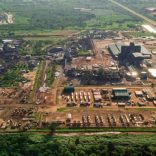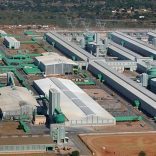Mozambique joins list of potential rare earth suppliers in Africa
CIP: Mozambique loses 50 mn meticais a year in taxes from gold and limestone mining in Sofala

Image: Centro de Integridade Pública - CIP
The Mozambican state loses around 50 million meticais a year in unpaid and underpaid taxes from the exploitation of gold and limestone in Sofala province, according to the Centre for Public Integrity (CIP).
A CIP document accessed today points to illegal exploitation, lack of transparency in production data, poor supervision, failure to properly channel taxes to local communities, unfulfilled promises, suspicions of corruption, high prices for mining-related products and significant environmental impacts as the main elements of the shortfall.
The practices listed above are carried out by at least three companies and one association operating in the districts of Chibabava, Gorongosa and Muanza. These are: Clay Gravel Mining Limitada, which exploits limestone in Chibabava; Irmãos Minerais Lda. and the Association of Artisanal Miners of Gorongosa (AMAG), which exploit gold in Gorongosa; and Cimentos de Moçambique, which exploits limestone in Muanza.
The CIP estimated that the state will lose around 50 million meticais in 2023 from the tax on gold and limestone mining production by the three entities mentioned, due to the lack of proper collection.
The NGO also estimates that, as a result of this tax evasion, communities affected by gold and limestone mining in those districts will fail to receive around 1.4 million meticais.
In Gorongosa, gold mining by the companies Irmãos Minerais Lda and Associação dos Mineradores Artesanais de Gorongosa (AMAG) resulted in losses estimated at 352,000 meticais.
In Chibabava, the exploitation of limestone by the company Clay Gravel Mining Limitada created losses of around 25.7 million meticais in taxes for the state.
In Muanza, limestone mining by Cimentos de Moçambique has led to losses estimated at 24.1 million meticais from the failure to channel the 2.75% of production tax to local communities, a lack of basic infrastructure, high cement prices and significant environmental impacts.
“To overcome these challenges and promote more transparent, efficient and equitable management, it is generally proposed to strengthen oversight and data transparency in all mining activities and to promote dialogue and cooperation between companies, local government, regulatory authorities and affected communities,” the CIP recommends.












Leave a Reply
Be the First to Comment!
You must be logged in to post a comment.
You must be logged in to post a comment.